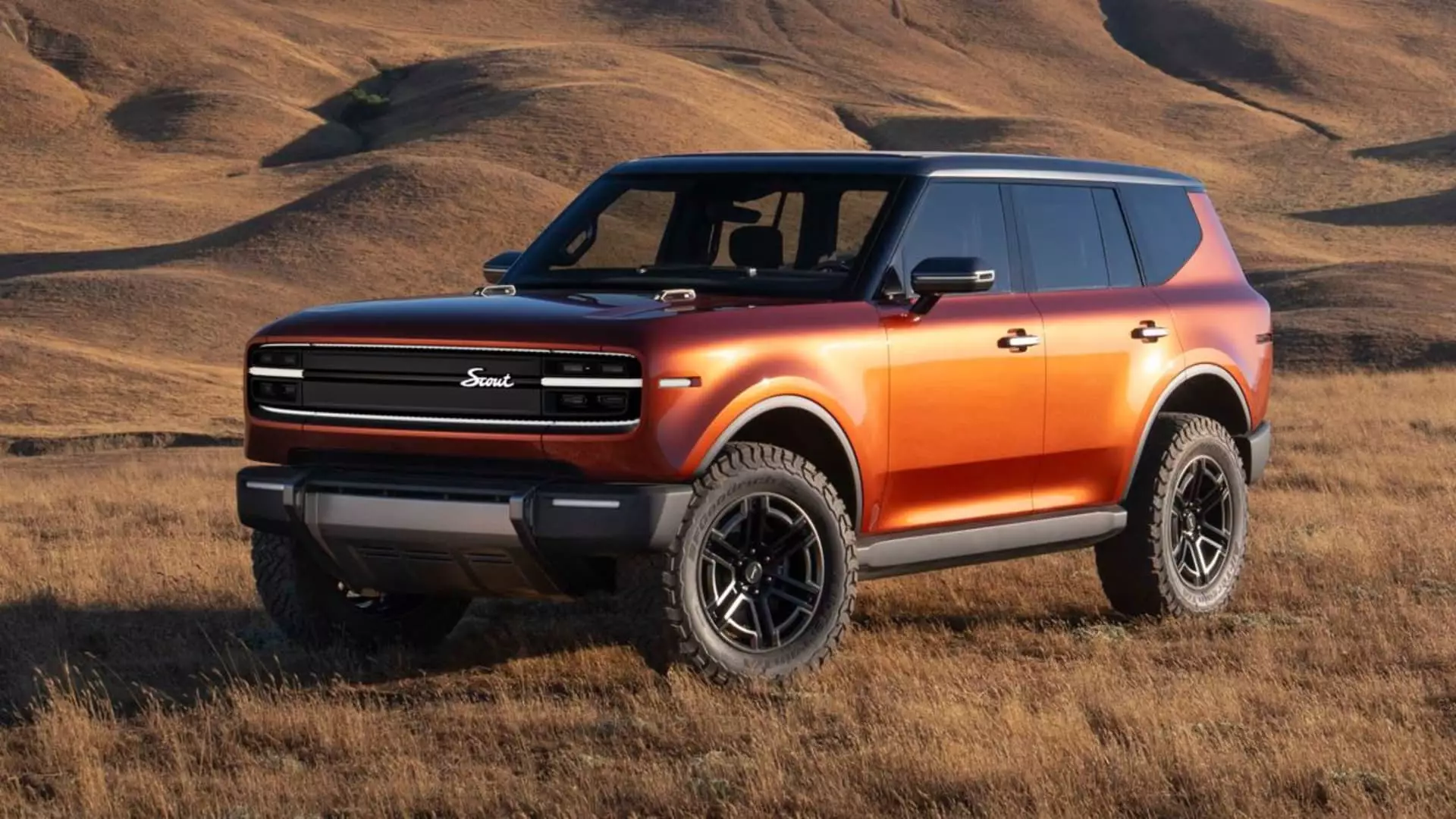Scout Motors, reinvigorated by Volkswagen’s backing, has recently unveiled its maiden lineup of electric vehicles (EVs), taking a significant step toward redefining its identity as a modern automotive manufacturer. Originally conceptualized as an American vehicle brand from 1961 to 1980, the new Scout aims to leverage its historical roots while adapting to contemporary demands in the automotive sector. The company initially focused solely on EVs but has modified its strategy to include extended-range electric vehicles (EREVs), acknowledging the current market’s challenges and consumer hesitancies surrounding full EV adoption.
This shift in strategy is critical given that the anticipated ramp-up in EV demand has not materialized as swiftly as expected. As Scout Motors CEO Scott Keogh highlighted, the company’s agility as a startup allows it to respond quickly to market realities. Scout’s pivot towards EREVs aims to mitigate risks associated with fluctuating consumer interest, ensuring that the brand maintains relevance while still championing the future of electrification. By incorporating an internal combustion engine as a generator, EREVs stand to deliver the electric experience while also offering a fallback mechanism, effectively easing potential range anxieties that consumers may harbor.
Scout’s strategic outlook not only emphasizes adaptability but also prioritizes profitability from the outset. With plans to launch a full-size pickup truck and a large SUV, the company targets approximately 40% of the lucrative U.S. sales market. Keogh has expressed confidence that Scout can achieve operational profitability within the first full calendar year post-launch — a goal that positions it in stark contrast to other electric startups which have struggled with massive financial losses.
The operational base for Scout’s manufacturing ambitions is a $2 billion plant under construction in South Carolina, which illustrates the brand’s commitment to scaling production effectively. The intended production capacity of 200,000 vehicles will enable Scout to compete strategically in the marketplace, particularly as it aims to attract segments traditionally dominated by established automakers. By focusing on popular vehicle types, Scout’s approach directly aligns with consumer demands for larger vehicles, which, in turn, increases the potential for market penetration and success.
A noteworthy aspect of Scout’s business model is its intention to sell vehicles directly to consumers, bypassing traditional franchising networks. This method not only streamlines the purchase process but also allows for better engagement with the customer base. Starting prices for the Traveler SUV and Terra pickup are anticipated to range between $50,000 and $60,000, signifying a thoughtful alignment with market expectations and consumer spending habits.
Interiors of the new Scout models showcase modern aesthetics with large horizontal screens and soft-touch materials, reinforcing the brand’s commitment to both technology and comfort. The integration of advanced features, such as bi-directional charging capabilities, sets a new standard in the consumer EV experience, emphasizing the multifaceted utility of electric vehicles. Furthermore, the design continues the legacy of iconic Scout models, infused with contemporary elegance that appeals to both nostalgia and modern design sensibilities.
In the broader context, Scout enters a competitive landscape characterized by established giants like Ford and GM, which have swiftly adapted to include electric and hybrid models. While current market conditions have led to a slowdown in large vehicle sales and incentivized pricing, Scout aims to carve out its niche by appealing to consumers with unique product offerings and attractive pricing strategies. Keogh’s perspective on leveraging the brand’s heritage and appealing directly to vehicle segments with lower price points is indicative of a nuanced understanding of market dynamics.
Moreover, by targeting EREVs and utilizing VW’s joint ventures for battery production, Scout is attempting a dual strategy that positions it to meet current consumer expectations while also paving the way for future growth. The anticipated market for electric trucks is projected to evolve, and Scout is keen on being a proactive player in this developing space.
Looking ahead, Scout Motors is poised for a promising trajectory. With a clear vision to expand its lineup and maintain a pulse on consumer needs, the evolution from traditional combustion engines towards electrified solutions opens a vital dialogue within the automotive industry. By blending historical significance with modern technology and consumer-centric strategies, Scout intends to re-establish itself as a vital player on the American automotive stage.
Keogh’s confidence in the brand’s ability to adapt and innovate while staying attuned to consumer sentiment suggests that Scout could be more than a mere revival of a classic name; it holds the potential to redefine itself within today’s innovative mobility landscape. Through its commitment to change, Scout Motors exemplifies the evolving identity of electric vehicles, balancing nostalgic appeal with contemporary demands for efficiency and sustainability. As they endeavor to lead the charge in this electric revolution, all eyes will be on Scout to see how they navigate the challenges and opportunities that lie ahead.

